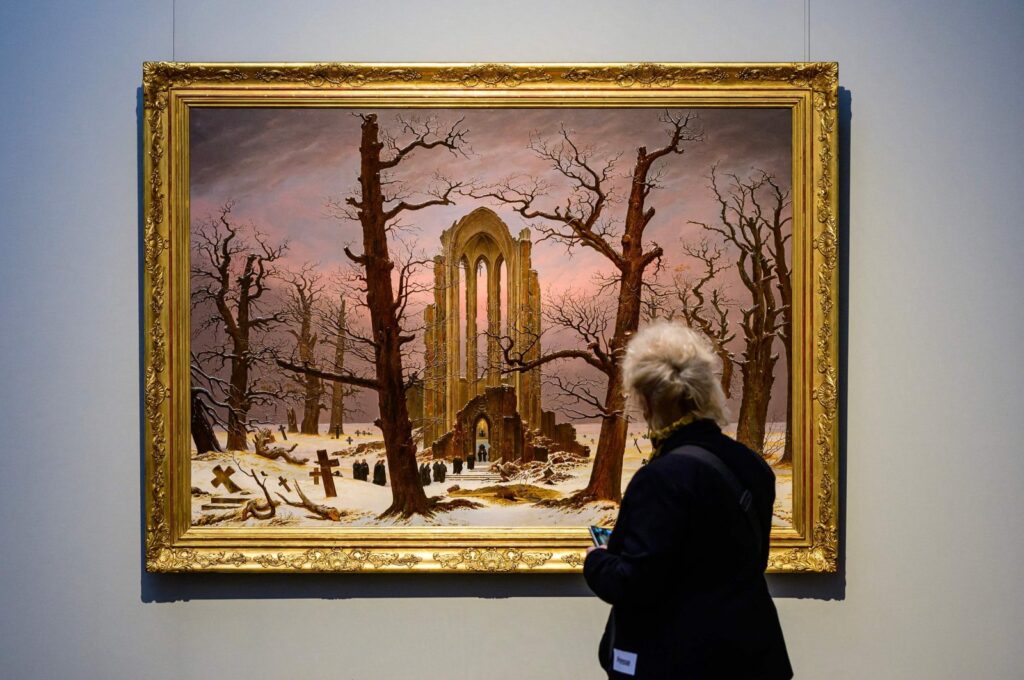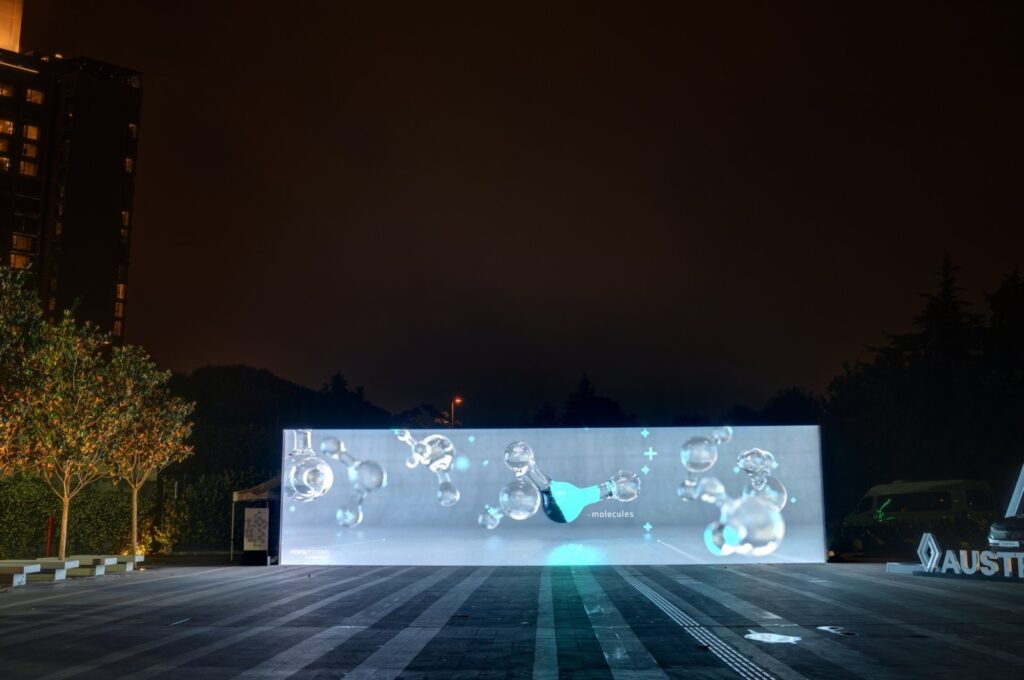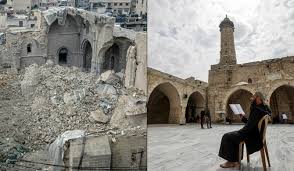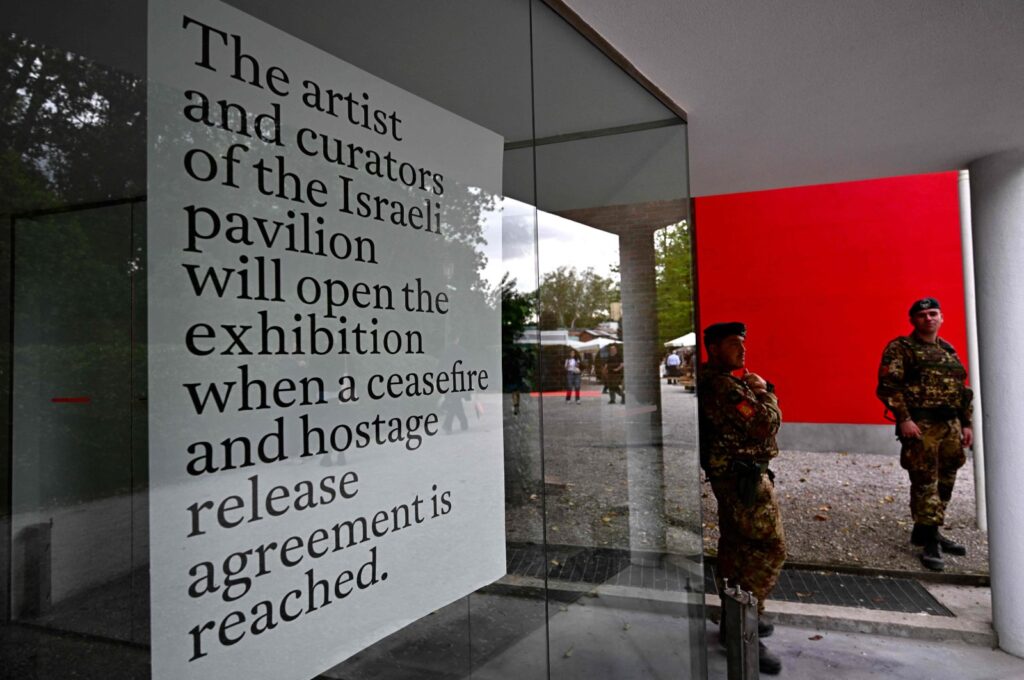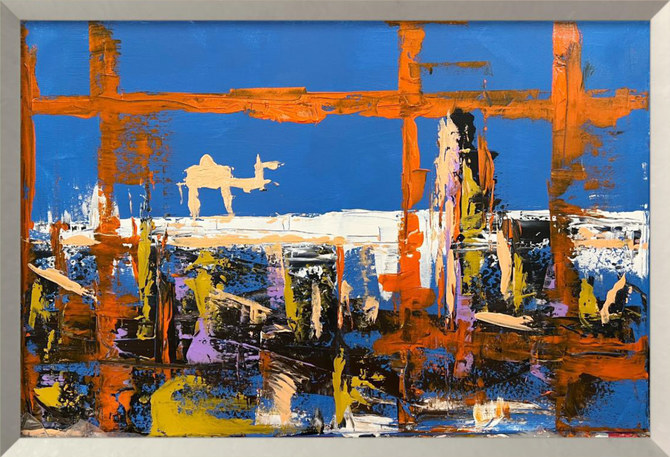
Monitoring Desk
Shusha, the pearl of Karabakh, is regaining its former glory through restoration supported by many cultural events, Azerbaijani Culture Minister Anar Karimov told Daily Sabah in an exclusive interview
“Shusha is ours, Karabakh is ours, Karabakh is Azerbaijan,” Azerbaijani President Ilham Aliyev said in 2020 while addressing his nation following the liberation of the key city of Shusha in the Karabakh region after 28 years of Armenian occupation. The liberation of the city, destroyed by Armenians during its nearly three-decade-long occupation, was celebrated by Azerbaijani citizens with great joy as the city symbolizes a part of their identity.

Shusha, known as the pearl of Karabakh, is one of the symbols of Azerbaijan’s history and culture. This historical capital, founded in 1752 by Karabakh Khan Panah Ali, has always been a touristic spot with its natural beauty, springs, pleasant weather and numerous historical monuments. But the city is also strategically important thanks to its geographical location dominating the region.
Following the liberation, the biggest aspiration of Azerbaijan became to reconstruct Shusha, the beating heart of Karabakh. While the Azerbaijani government immediately launched a master plan to rebuild the city, the biggest responsibility probably fell upon the country’s Culture Ministry. Therefore, we spoke with Azerbaijani Culture Minister Anar Karimov to learn more about the revitalization of Shusha.
Shusha, symbol of Azerbaijani identity
Noting that Shusha was historically always a center of Turkish and Islamic civilization, Karimov explained that Shusha has always been a very important city for Azerbaijani people as it symbolizes their culture, history and identity. According to the minister, one of the biggest reasons for Shusha’s importance is the fact that the city produced many prominent figures in Azerbaijani history. “Many significant writers, poets, musicians and even military commanders were from Shusha. Therefore, Azerbaijani citizens hold it very dear.”

Listing a few prominent figures from Shusha, Kermov offered details about the country’s cultural heritage. The daughter of the Mehdigulu Khan, the last ruler of the Azerbaijani Karabakh Khanate, Khurshidbanu Natavan, was a prominent poet from this beautiful city. Natavan founded and sponsored the first literary societies in Shusha and across Azerbaijan. Among these societies, Majlis-i Uns (“the Society of Friends”) was very popular and gathered poetic-intellectual forces of Karabakh of the time.
Shusha was also home to the founder of Azerbaijani classical music. Uzeyir Hajibeyov was a great composer who also composed the Azerbaijani national anthem. Explaining that Hajibeyov used a blend of national music and Western music, Karimov said that the artist combined the traditional folk music “mugham” with Western classical music, which became Azerbaijani classical music. The founder of the vocal art of Azerbaijan, Bulbul is also from Shusha. As a very famous opera singer, he performed in La Scala in Milan and in many other opera houses throughout his career.

“That is why when Shusha was occupied and became the subject of destruction, it was very difficult and painful to watch for Azerbaijani citizens,” Karimov said and added: “Moreover, Shusha has a very amazing but at the same time very tragic history. It became the subject of occupation and destruction three times. The first was in the middle of the 19th century, while the second and third ones were in the beginning of the 20th century and in the end of the 20th century, respectively. Shusha was also historically Azerbaijanis’ bastion of resilience for their identity and culture, which increases its importance for the locals.”
Reiterating that the liberation of Shusha after the 44-day struggle thanks to the Azerbaijani army and President Aliyev’s efforts inspired joy and pride in the nation, Karimov said: “We believe that the dark days have been left behind, and we are embarking on a very important mission to reconstruct and to rehabilitate Shusha. The sacred mission of our ministry is to revitalize the cultural spirit in Shusha, which was absent due to the nearly 30-year occupation.”
Year of Shusha
With these aims, the ministry started an action plan to revive Shusha through various restoration and preservation works and to organize various events from cultural to scientific in the city. The minister said that this year will be filled with diverse activities in Shusha, and almost every month will feature new events to bring back the missing spirit of the city. All these events are being planned as part of the 2022 Year of Shusha, declared by President Aliyev as it is the 270th anniversary of the establishment of the city by the first Karabak khan, Panah Ali. Karimov said that the first capital of this khanate was Agdam, another city in Karabakh that was also destroyed. Deciding to build another city that would be difficult to access and would dominate the region, the khan chose a perfect place on the high roads and started the construction of Shusha in 1752.
The minister touched upon the importance of cultural activities in rebuilding the region, particularly Shusha. Describing the revival of Shusha as twofold, he likened the cultural renaissance to the “software” side and the physical reconstruction and restoration part to the “hardware” side.

So, on the software side, the wheel has begun to pick up speed. “Cultural activities already started last year,” the minister said. “We organized festivals, one of them (was) the Khari Bulbul Music Festival, which bears the name of the flower that is endemic to this region, and especially Shusha. Khari (corresponds to) the flower and Bulbul means nightingale, and if you look at this flower you see the shape of the nightingale. That’s why it’s called Khari Bulbul. It became the symbol of Shusha, and Karabakh in general.”
The Khari Bulbul international festival has been a staple of Shusha for decades or had been. “We have organized (this) festival since the Soviet times. It became very famous (in those) times, because it brought together many cultural and folk groups in Shusha to celebrate this event. Of course, after the occupation, this wonderful tradition was interrupted, and now immediately after the liberation we relaunched it,” the minister explained.
The festival took place in May last year, it set to be organized this year as well, bringing together “cultural groups not only from Azerbaijan but also from the Turkic speaking countries” for a splendid celebration.

Khari Bulbul is not the only enticing offer on the table for Shusha. “Along with (Khari Bulbul), we also organize other events, and one of them (was) ‘Poetic Days of Molla Panah Vagif,’” the minister said and touched upon Vagif, an iconic historical figure of Shusha. “Molla Panah Vagif was a prominent poet and thinker of the Karabakh Khanate, he was also an adviser. He was very famous with his poetic and philosophical views,” he said. “There was a mausoleum that was destroyed by the Armenian armed forces during the occupation,” the minister said and noted that the mausoleum was immediately restored by order of Aliyev following the liberation. After it was restored, the mausoleum once again became a center of culture as it has been hosting sessions of poetic meclis (gatherings) and will continue to do so throughout 2022.
The minister said that the activities in Shusha this year will be a continuation of last year’s events but that they plan to double the efforts. He added that the restoration in Shusha also carries great importance. “When it comes to the restoration work in the city, it is another dimension of our activities in the city,” he said. Explaining that they already started the restoration of three important mosques and historical buildings in the city, Karimov emphasized that importance has also been placed on the restoration of the Christian architectural structures in the city along with the Islamic heritage. “We have already begun the restoration of two churches in Shusha. This is very important for us to showcase that Azerbaijan is not discriminating against the monuments. On the contrary, we are restoring and rebuilding them. For us, showing that we respect different cultures and religions is significant, but we also want to show that we see all the heritage in Shusha as a part of our identity. We believe that cultural heritage is irrespective of its origin and religious affiliations.”

“Right now, we are working on rebuilding and reconstructing the buildings, landmarks and monuments in Shusha. We hopefully will organize opening ceremonies for the mosques, churches and historical structures that we have restored in the near future. And the cultural activities that we will organize are a sort of ‘software’ that will accompany the ‘hardware’ works on the ground, that is the restoration projects,” he said.
Turkish support
The minister noted that they had received incredible support from Turkey and Turkic nations during the liberation, reconstruction and restoration phase of Shusha and Karabakh. “Turkic companies and Turkey in general first of all supported Azerbaijan during these 44 days of the liberation of our territories. Turkey provided political, moral and very important support to Azerbaijan in these difficult days. But moreover, it is also supporting Azerbaijan in the reconstruction works. Turkish companies are working in Azerbaijan. For instance, when it comes to the construction of the Fuzuli Airport and the roads, Turkish companies were among those who participated in this process. But also, when it comes to the reconstruction and rehabilitation and restoration works in Shusha, Turkish companies are also engaging in this process,” he said.
The minister detailed the relations between Azerbaijan and Turkey. “Apart from that, Turkish President His Excellency Recep Tayyip Erdoğan, visited Shusha with President of Azerbaijan His Excellency Ilham Aliyev. They signed the Shusha Declaration. This is a very famous declaration that was signed symbolically in Shusha and Karabakh, which further strengthened our brotherly ties between Azerbaijan and Turkey. It was very important that it was signed in Shusha, and it sends very important messages to the entire world, that Azerbaijan and Turkey are not only brothers and supporters to each other, but they are also strategic allies. So, it goes beyond already traditional ties, it goes today to the strategic level of cooperation.”

Karimov furthermore emphasized that the country wants to draw more Turkish visitors to Azerbaijan. “That’s the reason why we also built the Fuzuli Airport very quickly in a short time. It is just a hundred kilometers away from Shusha and the newly constructed Victory Road, named to commemorate the path used by Azerbaijani Armed Forces during the liberation of Shusha from Armenian occupation, is also there. We are also planning to start direct flights between Fuzuli Airport and Istanbul.”
With all its historical cultural significance and the revival projects it hosts, Shusha has also been nominated as the “Cultural Capital of the Turkic World” in 2023. Noting that many facilities are used to attract foreign visitors to Karabakh and Shusha and to show them why Shusha is so dear to Azerbaijan, Karimov said: “Shusha was historically always a center for Turkic and Islamic civilization, and it is unique in many ways. This is why President Aliyev brought forth the initiative to nominate Shusha as the cultural capital of the Turkic world in 2023. We will discuss it with the cultural ministries of other Turkic countries in a meeting to be held in Turkey’s Bursa, which is the capital of the Turkic world this year.”

The minister lastly talked about the collaboration between Azerbaijan and Turkey in the film industry. Explaining he paid his first overseas visit to Turkey after taking office and discussed many things with Turkish film producers during this visit, Karimov said Azerbaijan wants to benefit from Turkey’s experience in the film industry. Implying that the two countries are planning to produce films together, the minister also reiterated that Azerbaijan aspires to host the , which was launched in Istanbul last year and presented selected films from the vast Turkic world, in 2023 while celebrating Shusha as the cultural capital of the Turkic world.
Courtesy: Dailysabah
The post Cultural revival key in Shusha reconstruction: Azerbaijani minister appeared first on The Frontier Post.




